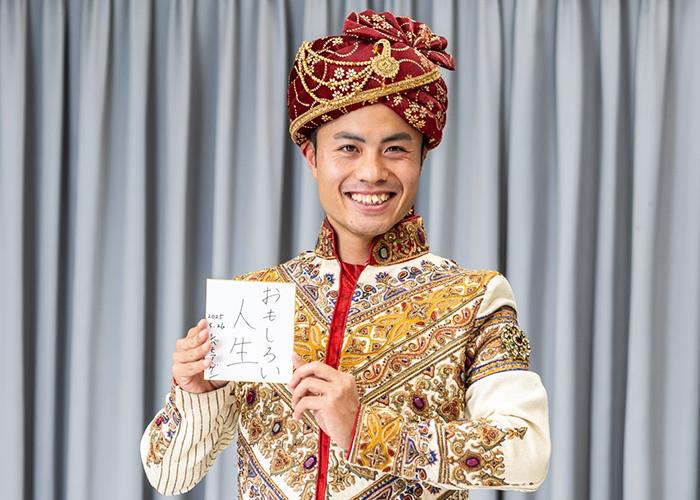For language acquisition, “time” and “purpose” are crucial
In Ghana, I had an experience where my English ability saved me. I planned to pay for local living expenses and my return ticket with cash advances on my card, but it turned out I couldn’t use that card for cash advances. I only had 30 dollars in cash. At one point I was in despair, thinking I might just perish there.
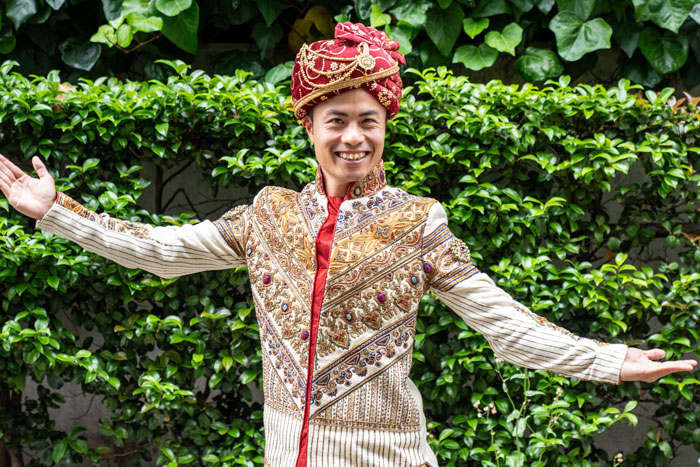
In the end, I managed to contact my mother by mobile phone, and she sent me an international transfer, but getting it required help from local people. All my interactions were, of course, in English. In other words, because I could speak English, I was able to solve the problem.
For the year before the Ghana trip, I thought, “I need to study English more,” so while taking university classes, I also attended an English conversation school. I had never said I wanted to study before, so when I suddenly said so, my parents were happy to pay the fees. Thanks to that my conversation skills improved, but the school was quite expensive, so you might say it wasn’t exactly cost-effective.
Even so, thanks to the solid foundation of high-school-level English I had built through Kumon, I was able to start the conversation school at a high level and absorb things quickly. When I studied at Kumon, I never thought about how it would be useful, but now as an adult I feel it taking effect. I truly feel glad that I did Kumon.
If you want to master a foreign language, securing time is the most important thing; or go abroad. Then you’re forced to use that country’s language whether you like it or not. Either way, the key is to first find a purpose. I had a clear purpose: “Get laughs with stand-up comedy.” I think that rather than simply wanting to get better at English, what really leads to improvement is consciously thinking “What will I do using English?”
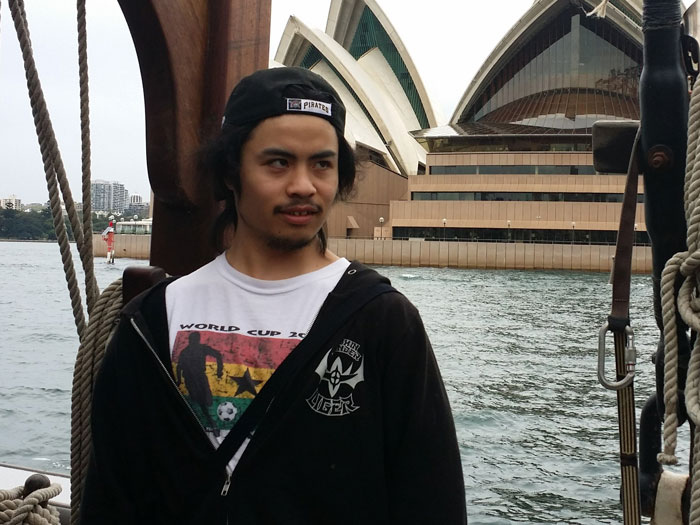
At the end of my second year in university, I took a year off and, using a working holiday, started attending a stand-up comedy school in Australia. But at first I got no laughs at all. I thought I had improved my English at the conversation school, but the locals said they couldn’t understand what I was saying at all—my pronunciation was the problem.
I had decided before going to Australia, “I will do stand-up and get laughs. If I can do that, I’ll pursue comedy.” But I wasn’t getting laughs, so I panicked—“I can’t carry on like this”—and had a local English teacher drill me in pronunciation for four to five hours every day. Looking back it was tough, but I could do it because I had the overwhelming goal of “getting laughs with stand-up.”

After finishing my working holiday in Australia, I went straight to New York, the home of stand-up comedy, and attended a stand-up comedy school there too. At the graduation show, for some reason I, the only Japanese among American students, was assigned as the closing act. I did a live comedy set in front of about 70 people. When I performed material that leveraged my Japanese background, I felt it land with the audience, and I became confident. I realized I’d be okay to keep doing comedy. That was the most nervous I’ve ever been. In New York I also took vocal training, and even performed in a gospel concert at Carnegie Hall.
After returning to Japan, I studied hard to earn the credits for my third and fourth years at university and to improve my English. In comedy, word choice is everything, and English comedy expressions are quite particular. In Australia I practiced pronunciation thoroughly, but I wanted to learn more comedic phrasing and timing, so I came up with my own method: watching the American Sitcom Friends, writing down funny expressions in a notebook, and memorizing them during my commute. But it didn’t feel like “studying”—I really enjoyed learning that way.
India’s appeal lies in the coexistence of diverse cultures
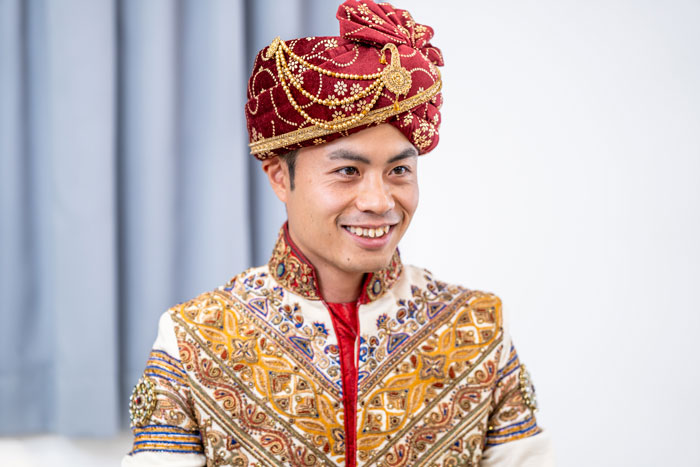
After honing my stand-up, pronunciation, and vocal training in Australia and the U.S., as I said in Part 1, I thought, “Next is acting. For acting, it’s India.” So, after finishing the credits needed to graduate, I went to India.
I looked up online the alma mater of an actor who appeared in the first Indian film I watched, contacted that drama school directly, and quickly received admission approval. I also stayed at a yoga ashram for about a month, spending a total of around six months in India. One day at the ashram, I happened to look at the internet and saw a video of my university’s graduation ceremony streaming, and I realized, “Oh, today was graduation…” I did graduate successfully, though. I didn’t go to pick up my diploma until five years later.
India, in a word, is a chaotic country. Australia and America are developed countries and felt a little lacking in stimulation, but India resembled the first place I had visited, Africa. It stirred my sense of adventure and survival and drew me in tremendously.
What’s most interesting about India is the mixture of so many cultures. India is vast, and the constitution recognizes 22 languages; the total number of languages used is said to exceed 1,000. There are rules by region, but there’s no single set of rules that unifies them. Individuals can behave freely, and it’s not considered strange. India is a place that accepts you as you are. Even though language and culture differ completely by region, the fact that it still functions as one country called “India” is itself very mysterious. The more you visit, the more fascinating things you discover. It’s worth digging into; it’s worth learning about. That’s India’s charm.
After staying in India and falling in love with it, I decided to become a comedian with an “Indian character.” Among the many entertainment agencies, I felt Sun Music had a lot of comedians with strong personas and might accept me, so I enrolled in Sun Music’s training institute.
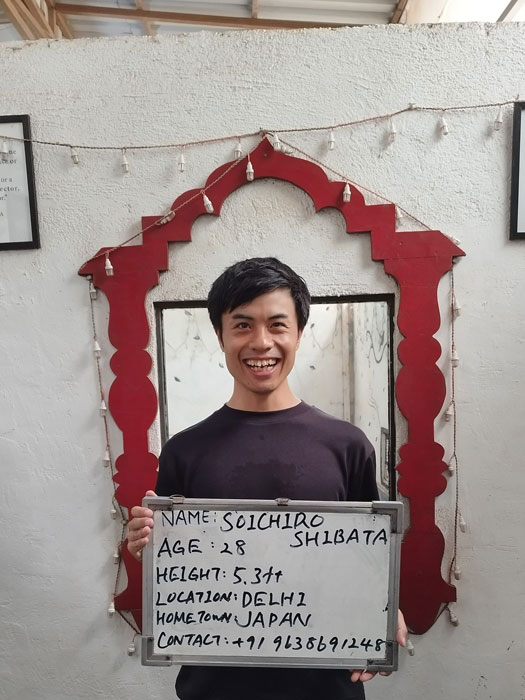
Trainees study basics such as vocalization for the first three months, then split into courses to study specialized skills. I chose the comedy course. I kept creating material, performing it for instructors, and receiving advice… I did that for two years. Now I’ve graduated from the institute and work as a comedian affiliated with Sun Music.
I report to my agency, but in India I basically handle management and contract negotiations myself. In India, casting calls for dramas and so on are posted on social media, so I apply to those, and lately I’ve become known enough within India that casting companies contact me directly too. Recently, I played the role of a Japanese soldier in a film.
Negotiations are conducted mainly in English, but I’ve also been studying Hindi and can speak it to some extent now. Speaking in Hindi goes over well with Indians. Language is culture, so I think people in India see me speaking Hindi and feel that I’m someone who respects Indian culture.
Aiming to be a “diplomat of entertainment”
with the motto “do it anyway,”
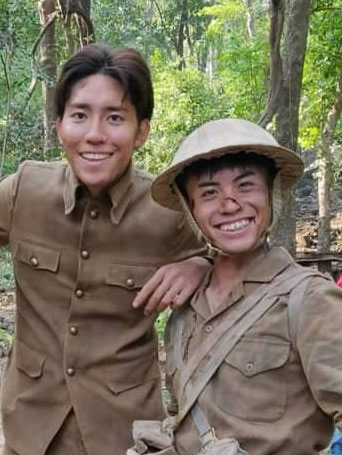
What I’ve kept in mind is: “do it anyway.” When I was going to Ghana, my father—who usually said nothing—told me, “If you’ve gone that far, not doing it isn’t an option. Do everything you can.” There are many things you can’t understand until you take action. I always act with the belief that “it’ll work out somehow.” I’m truly grateful to my parents and those around me who raised me to be able to act like this.
Going forward, I want to firmly establish what I’m doing now as my career, so that I can earn a bit more. And I aim to become a “diplomat of entertainment,” creating synergistic effects between India and Japan. Many Japanese people may still think of “curry” and “Gandhi” when they think of India, but Indian entertainment is incredibly interesting and attractive. I want to convey that to Japan, and conversely introduce Japanese entertainment to India. Also, I still haven’t fulfilled the dream I had when I watched my first Indian film— “to dance among Indians”—so I want to make that happen too.
Some parents may worry, “My child’s grades are poor,” or “They can’t do anything.” As a Kumon Instructor, my mother often hears such concerns from parents. She always says, “Compared to my son, your child is way better. It’ll be fine!” Then the parents accept it. Maybe it’s persuasive (laugh). But truly, even someone like me, who had poor grades and was mischievous, is getting by, so I want everyone to be confident.
That said, it might be good to study steadily. There may be smart kids who study with clear goals from a young age, but that’s a minority. Even so, adults say “You should study” because, when you later find something, you want to study—like I did—you can start from a good position. Having lots of cards in your hand and being able to start pursuing your dreams and goals: that’s the meaning of studying from a young age, I think.
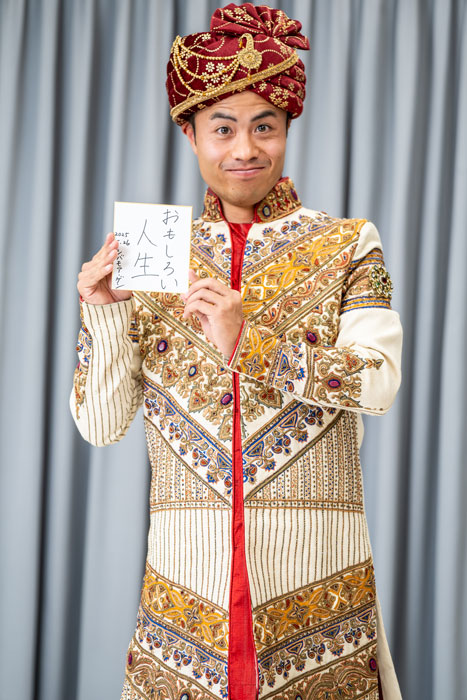
Because I did Kumon, when I studied English at university, I was able to start from a high level. Thanks to that, I am where I am now. The things I’ve done are connected. Even if you don’t currently have something you love or want to do, as you try various things you’ll likely notice what you like and find what you want to do. If you do, I think you’ll get closer to an “interesting life.”
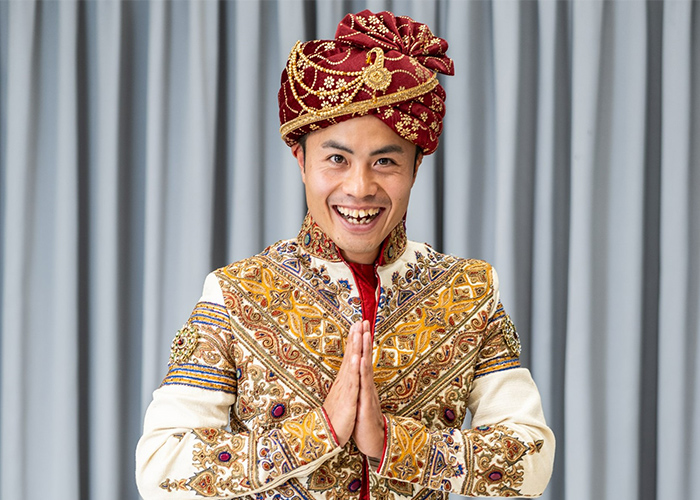 |
From the Part 1 interview -My stage name comes from the Ghanaian soccer player Asamoah Gyan |

